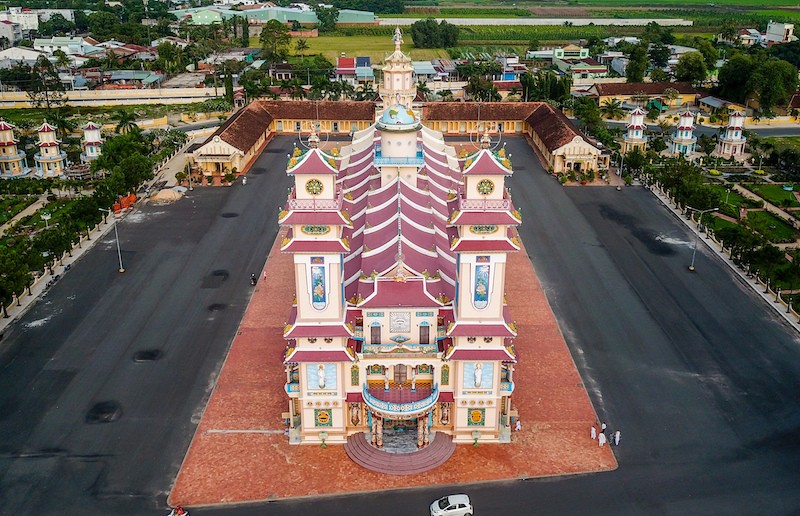 |
| This religious complex built between 1936 and 1947. Photo: VnExpress |
Tay Ninh Cao Dai Temple is located in Long Thanh Bac Commune, Hoa Thanh District, 4km southeast of Tay Ninh City.
This unique attraction is Vietnam’s biggest cathedral of the Cao Dai religion, also the main attraction in Tay Ninh and is considered one of the biggest religious sanctuaries in the world.
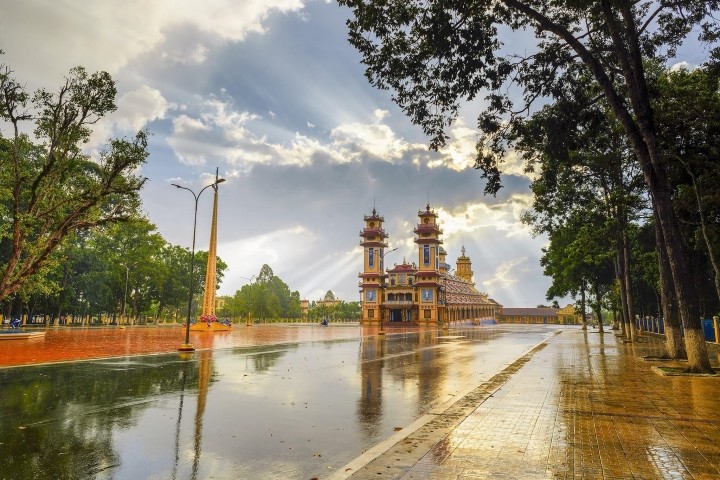 |
| Photo: VTC |
Adorned with eye-catching colors, Cao Dai Holy See will attract you at first sight with its unique architecture.
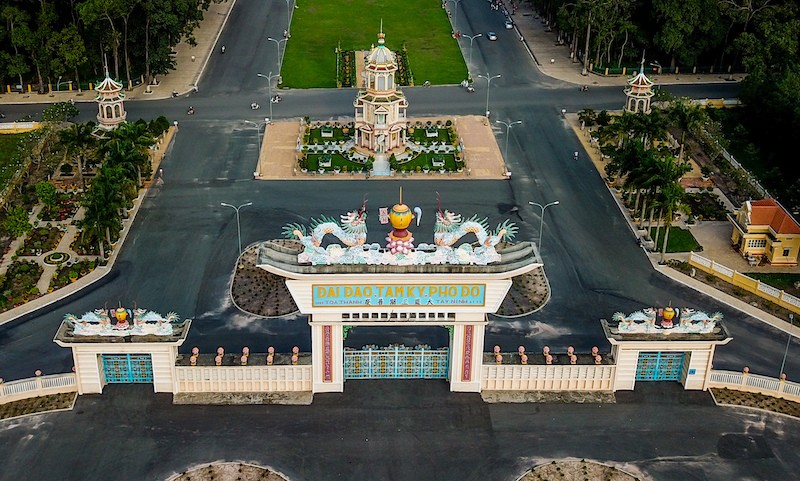 |
| Photo: VnExpress |
The 12 gates are carved with four holy animals (dragon, unicorn, turtle, phoenix), decorated with lotus flowers.
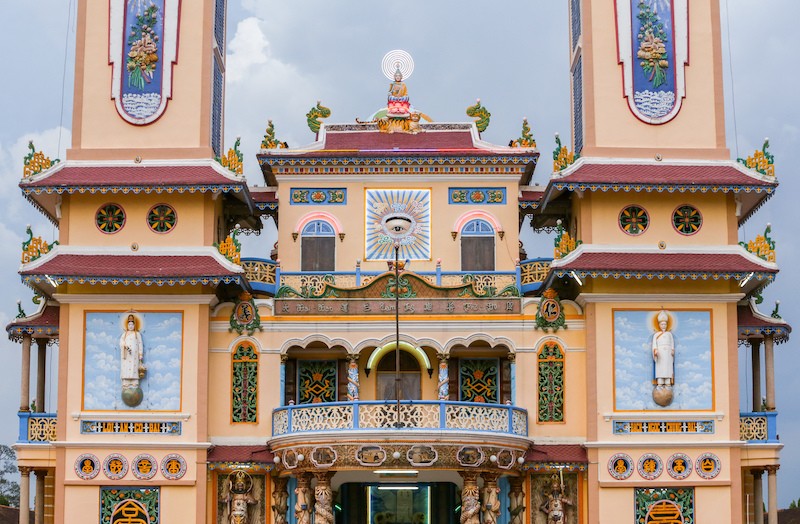 |
| Photo: VnExpress |
The strong vibrant colors, which are perfect for snapping travel photos, make the destination one of the tourists’ favorite attractions in Tay Ninh.
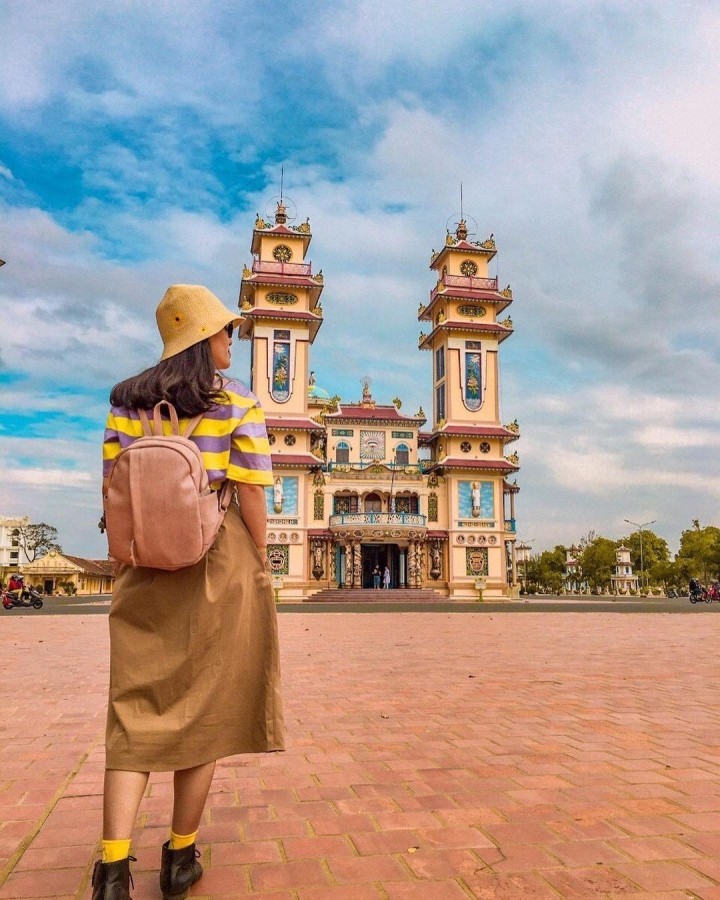 |
| For those who are curious about different religions in Vietnam, Cao Dai temple is a must-visit destination. This is the biggest, most unique Caodaism architecture in Vietnam. Photo: ninapham_pqn |
Cao Dai, (“High Tower,” a Taoist epithet for the supreme god), a syncretist modern Vietnamese religious movement with a strongly nationalist political character.
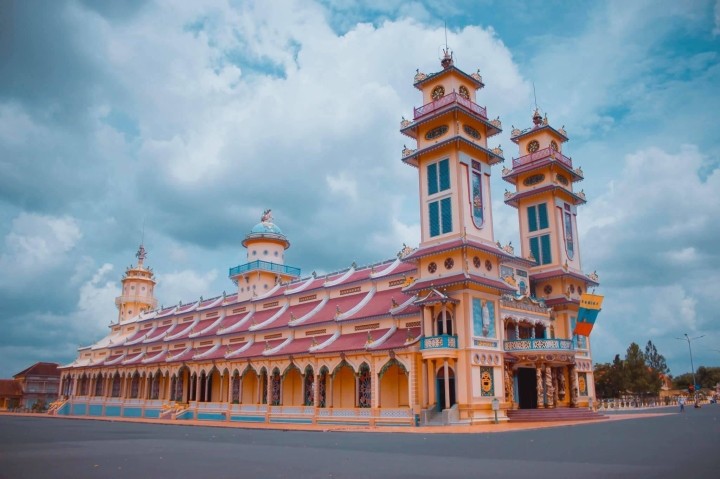 |
| Photo: VTC |
Cao Dai draws upon ethical precepts from Confucianism, occult practices from Taoism, theories of karma and rebirth from Buddhism, and a hierarchical organization (including a pope) from Roman Catholicism. Its pantheon of saints includes such diverse figures as the Buddha, Confucius, Jesus Chirst, Muḥammad, Pericles, Julius Caesar, Joan of Arc, Victor Hugo, and Sun Yat-sen.
The religion’s organization is patterned after that of Roman Catholicism, with a pope, cardinals, and archbishops. Worship involves elaborate rituals and festivals.
Caodaism architectural designs can be seen in both the exterior and interior architecture of the Temple with meticulous motifs.
The windows of the Great Temple are decorated by lotus patterns surrounding the divine eye in the middle of equilateral triangle.
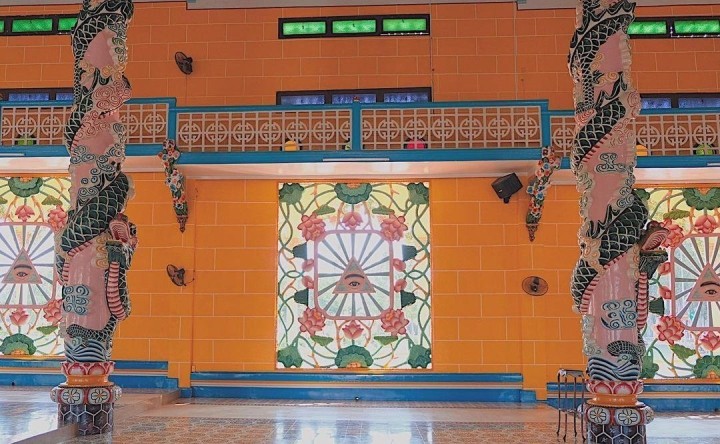 |
| In Cao Dai, God is represented as an eye in a triangle, a symbol that appears on the facades of the sect’s temples. Photo: VTC |
With an area of about 40km², Tay Ninh Cao Dai Temple includes nearly 100 religious architectural works such as the Great Temple, Bao An Tu (Mother of Buddha Temple), the towers, etc, and 12 three-door gates, of which, the biggest gate is Chanh Mon, 11 remain gates is numbered from 1 to 12 (except number 5).
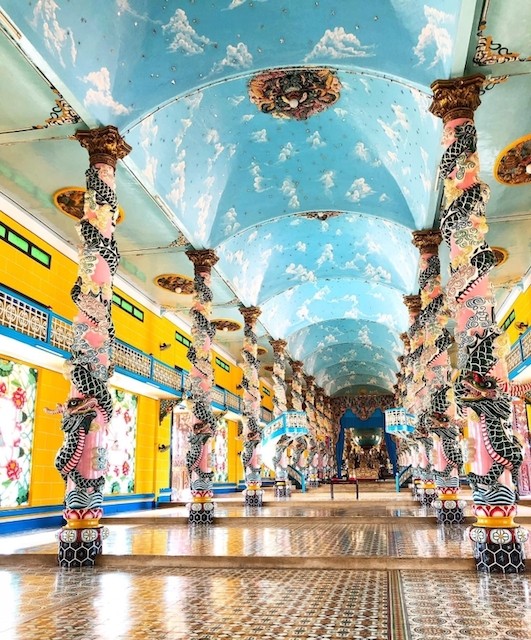 |
| The construction is a harmonious fusion of Asian and European styles, with domes and embellishments exemplifying the spirit of the religion. Photo: VTC |
The most interesting work in this complex is the Great Temple built according to the architectural requirements of the Caodaism religion. The construction is a harmonious fusion of Asian and European styles, with domes and embellishments exemplifying the spirit of the religion.
The Great Temple has an actual size of 97.5m long and 22m wide with the shape of dragon horse kowtowing.
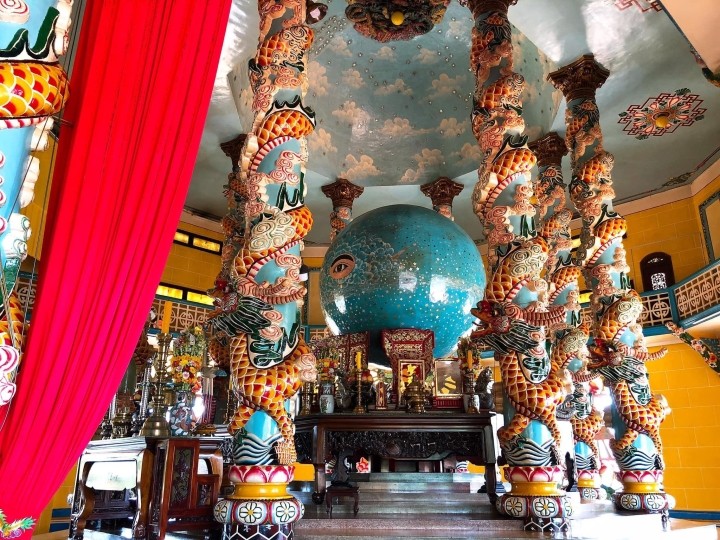 |
| After a long entrance, tourists reach the Great Temple, where they can offer incense to show respect to the Divine Eye. Photo: VTC |
Bat Quai (Pa kua) Pavilion located at the end of the Great Temple has 8 dragon pillars arranged in the pa kua shape. In the middle, there is 3.3m-diametre Can Khon (Qian Kun) Ball with Divine Eye – symbol of Caodaism religion.
The two sides of the Great Temple are the bell tower (in the left) called Bach Ngoc Chung Dai and the drum tower (in the right) called Loi Am Co Dai. The both two towers are 27m high and have 6 floors.
 |
| T he bell tower (in the left) is called Bach Ngoc Chung Dai and the drum tower (in the right) is called Loi Am Co Dai.Photo: VTC |
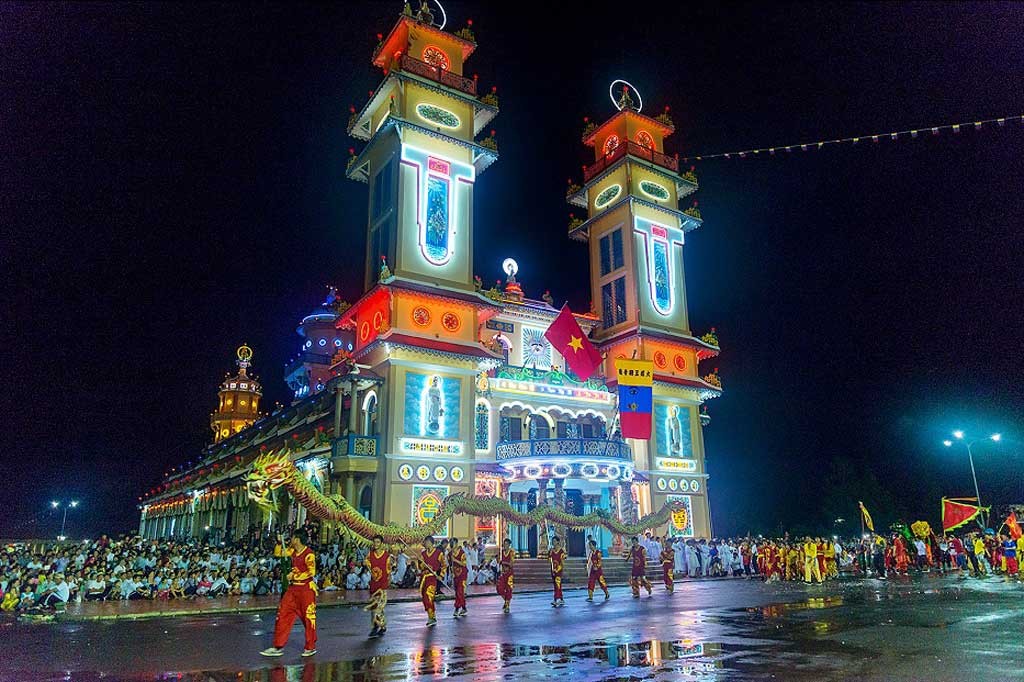 |
| Festival held at Cao Dai Temple at nightlife. Photo: Mytayninh |
When visiting Cao Dai temple, you must follow dressing rules such as only long trousers and sleeved tops are allowed. Also, taking photos is restricted in certain areas so look out for the signs or the instructions from the staff.



